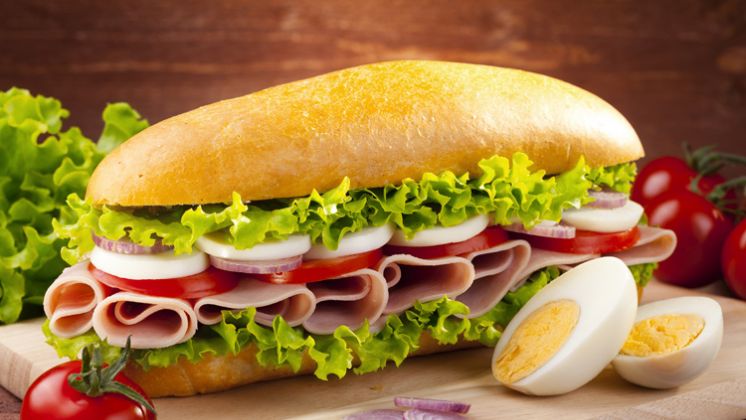7 dietary tips to help build muscle and shed fat
Forget eating six meals a day. By feasting at dinner time you can build muscle and slash fat without sacrificing your social life

When was the last time you managed to cram in six healthy meals – along with exercise, a productive workday and going out with your mates – into a day? This approach to eating healthily is unsustainable and, unless all your friends and family live in your kitchen, frankly unsociable. There are equally effective, and far more practical, alternatives. Intermittent feasting is a dietary approach that works around your lifestyle. The principle is simple. Eat light during the day and feast in the evening. Here’s how it breaks down.
Crunch the numbers
First, focus on the numbers. Based on your bodyweight you can work out how many calories you need a day and how many should come from protein, fat or carbs (see the box below). Your calorie target will be higher if you’re looking to gain muscle and lower if your goal is fat loss.
Pick up your groceries
Next, make sure those calories come from the right sources. Follow the ‘caveman rule’: if it was around in caveman times, you can eat it. That means protein and fats should come from animal sources such as fish, meat and eggs. Vegetables and whole fruit provide fibre, vitamins, minerals and phytonutrients. Your primary energy fuel for anaerobic training comes from natural starchy foods such as sweet potatoes, yams and rice.
Feast on your own terms
Now plan a diet structure that’s easy and sustainable for you. With intermittent feasting you can eat most of the calories you need at a time that’s convenient. For most people that’s at dinner time when you get home, but the beauty of this approach is that you can tailor your meal distribution to work around your job and social patterns.
Get the Coach Newsletter
Sign up for workout ideas, training advice, reviews of the latest gear and more.
Timing is everything
Humans evolved on a fasting and feeding cycle. Daytime was for hunting and gathering but night was the time to feast. The same is true today. When you wake in the morning your body is still fuelled from dinner the night before but is optimised to burn body fat. Skip breakfast and just grab a tea or coffee. Eat a lunch of animal protein plus veg and nuts. On training days, have a piece of whole fruit before and after your workout. For dinner, go big to hit your daily calorie quota and end the night satisfied.
Carbs aren’t the enemy
When it comes to carbs there are two templates to follow: the low-carb, Paleo diet for sedentary people to help with fat loss and maintaining lean muscle, and what I call the traditional Japanese village diet for athletes and regular gym-goers. The latter should eat rice and root vegetables to support their training. If you exercise intensely three or more times a week your body is recovering pretty much all the time. Failing to give your body the nutrients it needs can lead to low testosterone and sex drive, muscle loss and, most noticeably, a foul mood.
It’s never too late
Another misconception is that eating a big meal before bed will make you store fat. Nonsense. It’s total food intake that’s important. If you eat light during an active day, chances are you’ll be in energy deficit by your evening meal. A high-carb dinner will restore energy reserves but is unlikely to spill over into fat stores.
Cheats do prosper
Sustainability is the key. Planned cheat meals will keep you on track – within reason. If you allow yourself one night a week when you don’t obsess about your diet, especially when socialising, you’ll be less likely to cave in to your cravings the rest of the time. It’s better to eat well 90% of the time and stay on target long term than to go for 100% and burn out after only a couple of weeks.
Food formula
Use these feasting figures to work out your daily menu
Get 20% of your calories from healthy fats, eat 2.2g of protein per kg of bodyweight and make up the difference with carbs. The amounts simply change depending on your size and goal. Too complicated? Don't worry, we’ve done the maths – if you weigh 80kg, here’s what to eat daily.
For fat loss
22-26 calories per kg of bodyweight
1,920 calories total
176g protein
43g fat
208g carbs
For maintenance
29-33 calories per kg of bodyweight
2,480 calories total
176g protein
55g fat
320g carbs
For muscle gain
35+ calories per kg of bodyweight
2,800 calories total
176g protein
62g fat
384g carbs
Coach is a health and fitness title. This byline is used for posting sponsored content, book extracts and the like. It is also used as a placeholder for articles published a long time ago when the original author is unclear. You can find out more about this publication and find the contact details of the editorial team on the About Us page.

